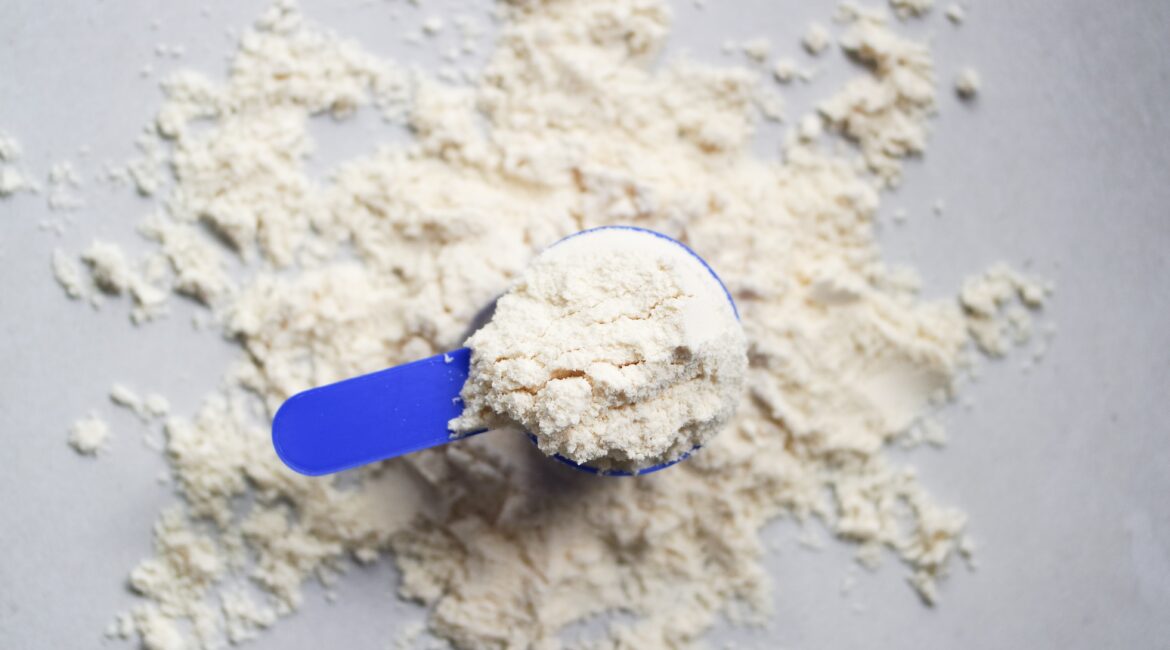In the fitness and health world, protein supplements and testosterone are two often-discussed topics. Protein supplements, such as whey protein and casein, are popular among athletes and fitness enthusiasts for their ability to support muscle growth and recovery. On the other hand, testosterone, a hormone that plays a key role in male health and fitness, is associated with muscle mass, strength, and sex drive. But how do these two aspects relate? Do protein supplements affect testosterone levels? Let’s explore the scientific perspective.
Understanding Testosterone and Protein Supplements
Before delving into the relationship between protein supplements and testosterone, let’s define these terms. Testosterone is the primary male sex hormone, responsible for the development of male reproductive tissues and the promotion of secondary sexual characteristics. It also significantly influences muscle mass and fat distribution.
Protein supplements, often consumed in powder form, are concentrated sources of high-quality protein. They’re commonly used to help meet elevated protein requirements, especially among those engaged in regular, intense physical activity.
Protein Supplements and Testosterone Levels
Scientifically speaking, the relationship between protein supplements and testosterone levels is not straightforward. Let’s look at some considerations:
1. Direct Effect: There is currently no substantial scientific evidence to suggest that protein supplements directly influence testosterone levels. Protein is essential for general health, muscle recovery, and growth, but its consumption, through supplements, does not appear to directly increase or decrease testosterone levels.
2. Indirect Influence Through Diet: While protein supplementation doesn’t directly affect testosterone levels, one’s overall diet can impact hormone balance. Consuming a balanced diet, which includes adequate protein, carbohydrates, and healthy fats, can help maintain optimal hormone production, including testosterone.
3. Relationship with Cortisol: Protein supplementation could have an indirect effect on testosterone levels through its influence on cortisol, a hormone that increases with physical stress and has a catabolic (muscle-breakdown) effect. Some research suggests that consuming protein before or after workouts can help manage cortisol levels, thereby preserving an optimal testosterone-cortisol ratio, which is important for muscle growth and recovery.
4. Body Composition and Testosterone: There’s a well-established link between body fat and testosterone. Overweight and obesity are linked to lower testosterone levels. As protein supplementation can support weight management and lean muscle mass, it may indirectly contribute to maintaining healthy testosterone levels by promoting a healthier body composition.
Considerations and Conclusion
While protein supplements don’t appear to directly boost testosterone levels, they play a vital role in supporting a balanced diet and helping maintain muscle mass, factors that can indirectly contribute to healthy testosterone levels. However, it’s important to remember that supplements are not a magic solution. Achieving and maintaining healthy testosterone levels is often a result of lifestyle factors including a balanced diet, regular exercise, adequate sleep, and stress management.
If you’re considering protein supplementation, it’s essential to choose high-quality products and use them as part of a balanced diet. Over-reliance on supplements at the expense of whole food sources can lead to nutrient imbalances and should be avoided. As with all supplementation, individual needs will vary, and it is advisable to consult with a healthcare provider or a registered dietitian.
Organic and Minimally Processed Protein Sources: Key for Optimal Testosterone Levels
As health and wellness become central to our everyday lives, we are continuously re-evaluating the quality of the foods we consume, including our protein sources. Not all protein is created equal, and the difference in quality can have a significant impact on your health, including hormone levels like testosterone. The choice between organic, minimally processed proteins and those laden with artificial additives and hormones can make a significant difference in how our bodies function.
The Issue with Non-organic and Heavily Processed Proteins
Non-organic, heavily processed proteins can negatively affect our health and hormone balance in several ways.
1. Pesticides and Hormones: Non-organic animal products often come from animals that have been treated with synthetic hormones and antibiotics and fed pesticide-treated feed. These substances can end up in the final product, and when consumed, can disrupt our endocrine system, which includes testosterone.
2. Artificial Additives: Many processed protein sources, such as protein powders, can contain artificial sweeteners, preservatives, and other additives. Some research has linked these additives to an array of health issues, including hormonal imbalances.
3. Nutrient Deficiency: Heavily processed proteins often lack the additional nutrients found in whole food protein sources, such as vitamins, minerals, and fiber. These nutrients are important for maintaining overall health and supporting normal hormone production.
Why Choose Organic, Minimally Processed Proteins?
Opting for organic, minimally processed protein sources can help safeguard your testosterone levels and overall health for several reasons:
1. Free from Synthetic Additives: Organic proteins are free from synthetic hormones, antibiotics, and pesticides, reducing your exposure to these potentially hormone-disrupting substances.
2. Rich in Nutrients: Organic, minimally processed proteins are generally more nutrient-dense, providing more of the vitamins and minerals essential for hormone production and overall health.
3. Environmental Impact: Organic farming practices are typically more sustainable and environmentally friendly, contributing to the preservation of our planet’s resources.
Protein Sources to Consider
When it comes to choosing protein sources that are organic and minimally processed, here are some options:
1. Organic Animal Proteins: Look for organic, grass-fed beef; organic, free-range poultry; wild-caught fish; and organic dairy. These provide high-quality protein and are less likely to contain synthetic hormones and pesticides.
2. Organic Plant-Based Proteins: For those following a plant-based diet, consider organic tofu, tempeh, lentils, chickpeas, quinoa, and hemp seeds. These foods provide good amounts of protein and other important nutrients.
3. Organic Protein Supplements: If you choose to use a protein supplement, select a product that is organic and free from artificial additives. Look for brands that value transparency and third-party testing for quality assurance.
Remember that while choosing organic, minimally processed protein is a positive step, it’s also crucial to consider your overall dietary pattern. Consuming a balanced, varied diet rich in fruits, vegetables, whole grains, and healthy fats alongside your protein sources will support optimal health and hormone balance.
Consulting with a healthcare provider or a registered dietitian can provide personalized advice tailored to your individual needs and lifestyle. Together, you can create a balanced diet plan that supports healthy testosterone levels and overall wellbeing.
Plant-Based Protein Powders
Plant-based protein powders have gained traction in the health and fitness industry due to their high nutritional content, eco-friendliness, and suitability for various dietary needs. Whether you’re a vegan, have dairy allergies, or are simply seeking alternatives to animal-based proteins, these products may be of interest. In this article, we’ll delve into some top choices including Ka’Chava, Maximum Vibrance, and others.
1. Ka’Chava
Ka’Chava is a plant-based meal replacement powder that’s gaining popularity for its whole food ingredients and impressive nutritional profile. The primary protein sources in Ka’Chava are yellow pea protein and whole grain brown rice protein. One serving of this supplement provides a significant amount of protein (25 grams), fiber, omega-3s, and probiotics, making it a well-rounded choice.
In addition, Ka’Chava boasts of over 70 plant-based superfoods and nutrients, including fruits, vegetables, herbs, mushrooms, and adaptogens. It’s a non-GMO product, free from artificial sweeteners, preservatives, and is suitable for individuals following a gluten-free, soy-free, or dairy-free diet.
2. Maximum Vibrance
Maximum Vibrance by Vibrant Health is a comprehensive, plant-based supplement that’s more than just a protein powder. It serves as a meal replacement, offering a balanced profile of proteins, carbohydrates, and fats. The protein content (20 grams per serving) comes from an array of plant sources, including pea protein, sprouted brown rice protein, and spirulina.
Besides protein, Maximum Vibrance contains a unique blend of greens, fruits, vegetables, probiotics, and digestive enzymes, offering extensive nutritional support. It’s a gluten-free and non-GMO product, making it a suitable choice for those with specific dietary requirements.
3. Vega One All-In-One Shake
Vega One is another well-known name in the plant-based supplement world. The All-In-One Shake provides a substantial amount of protein (20 grams per serving) from pea protein, flaxseed, and hemp protein. The blend also incorporates a variety of vitamins and minerals, fiber, omega-3s, probiotics, and antioxidants from a range of fruits and vegetables.
Vega One is a non-GMO, gluten-free, and vegan-friendly product with no artificial colors, flavors, or sweeteners. It’s available in a variety of flavors, making it a versatile choice for a protein shake or smoothie base.
4. Orgain Organic Protein Powder
Orgain Organic Protein Powder is a cost-effective and widely available plant-based protein option. It contains a blend of organic pea protein, organic brown rice protein, and organic chia seed, providing 21 grams of protein per serving.
In addition to its high protein content, Orgain is free from artificial sweeteners, colors, and preservatives. It’s also soy-free, gluten-free, and non-GMO, making it suitable for individuals with various dietary preferences and needs.
5. Sunwarrior Warrior Blend
Sunwarrior’s Warrior Blend is a high-protein, low-carb plant-based powder that combines a unique mix of organic pea protein, organic hemp protein, and organic goji berry. It provides a complete amino acid profile, necessary for muscle growth and recovery.
Sunwarrior Warrior Blend is soy-free, gluten-free, and non-GMO, with no added sugars, making it a clean and straightforward plant-based protein option. It is also available in various flavors, allowing users to choose according to their taste preferences.
Plant-based protein powders can offer a convenient way to increase protein intake, especially for individuals following a plant-based diet. However, it’s important to remember that they are supplements and should not replace balanced, whole food meals. Always be sure to check the ingredient list, as some products may contain added sugars and artificial ingredients. It’s also advisable to consult with a healthcare professional or a registered dietitian before starting any new supplement regimen.
Summary
In summary, while protein supplements do not directly affect testosterone levels, they play a significant role in an overall lifestyle that supports healthy hormone balance. Therefore, a well-rounded approach that incorporates diet, exercise, and possibly supplementation, will be the most effective way to maintain healthy testosterone levels.




